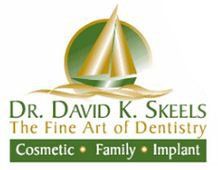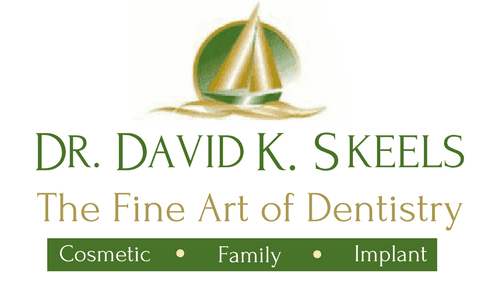Sensitive Teeth Rochester NY
Most individuals know that tooth pain indicates a serious oral health issue. But many of the same people live with oral sensitivity to cold, heat, or pressure on a daily basis. In fact, some studies suggest that as many as half of all American adults live with tooth sensitivities. At Dr. David K. Skeels, we help our patients understand and treat this discomfort.
Do you have sensitive teeth in the Rochester, NY cold? Do you experience discomfort when eating crunchy or hard foods? Do your teeth hurt when you drink warm or sugary beverages? If you answer yes to these questions, or experience any other types of sensitive teeth, our Rochester, NY staff can help.
Learn the Causes of Sensitive Teeth
Almost all tooth sensitivity results from dentin exposure. Your teeth consist of an outer shell of hard enamel. On its own, enamel has no nerve endings. However, the layer beneath tooth enamel, known as dentin, contains nerve fibers. When dentin becomes exposed, it sends pain signals to your brain.
Dentin exposure results from a number of causes, including the following:
- Acidic and sugary foods in the diet, which weaken enamel
- Bruxism, or teeth grinding, which corrodes the tooth's surface
- Receding gums, sometimes related to gingivitis or other gum disease
- Tooth decay or plaque buildup, especially along gums
- Wear and tear that thins enamel
Relieve Sensitive Teeth at Our Rochester, NY Office
Regardless of tooth sensitivity causes, your dentist can help you diminish their effects and prevent any further wear. Common treatments include:
- Desensitizing toothpastes:
Multiple toothpaste brands contain ingredients which numb the nerve endings in your dentin. This desensitization can reduce the pain you feel when your teeth become exposed to heat, cold, or pressure.
- Fluoride products:
Fluoride strengthens your teeth over time. Your dentist may recommend fluoride toothpaste or rinse for at-home use.
- In-office dental solutions:
In-office, sensitive-teeth treatments vary according to patient needs. In minor cases, the dentist may apply fluoride or resin on your teeth's surfaces. In-office treatment may also include fillings and cleanings.
- Low abrasion dental products:
In some cases, sensitivity occurs due to improper brushing, especially hard or excessive brushing. To allow you to brush your teeth without causing more damage, you may need to use a low abrasion toothpaste or a soft bristled toothbrush.
- Proper oral hygiene: Your best defense against future tooth sensitivity is good oral hygiene. This includes correct brushing at home, twice-daily flossing, regular check-ups, professional cleanings, and dental work as necessary.



